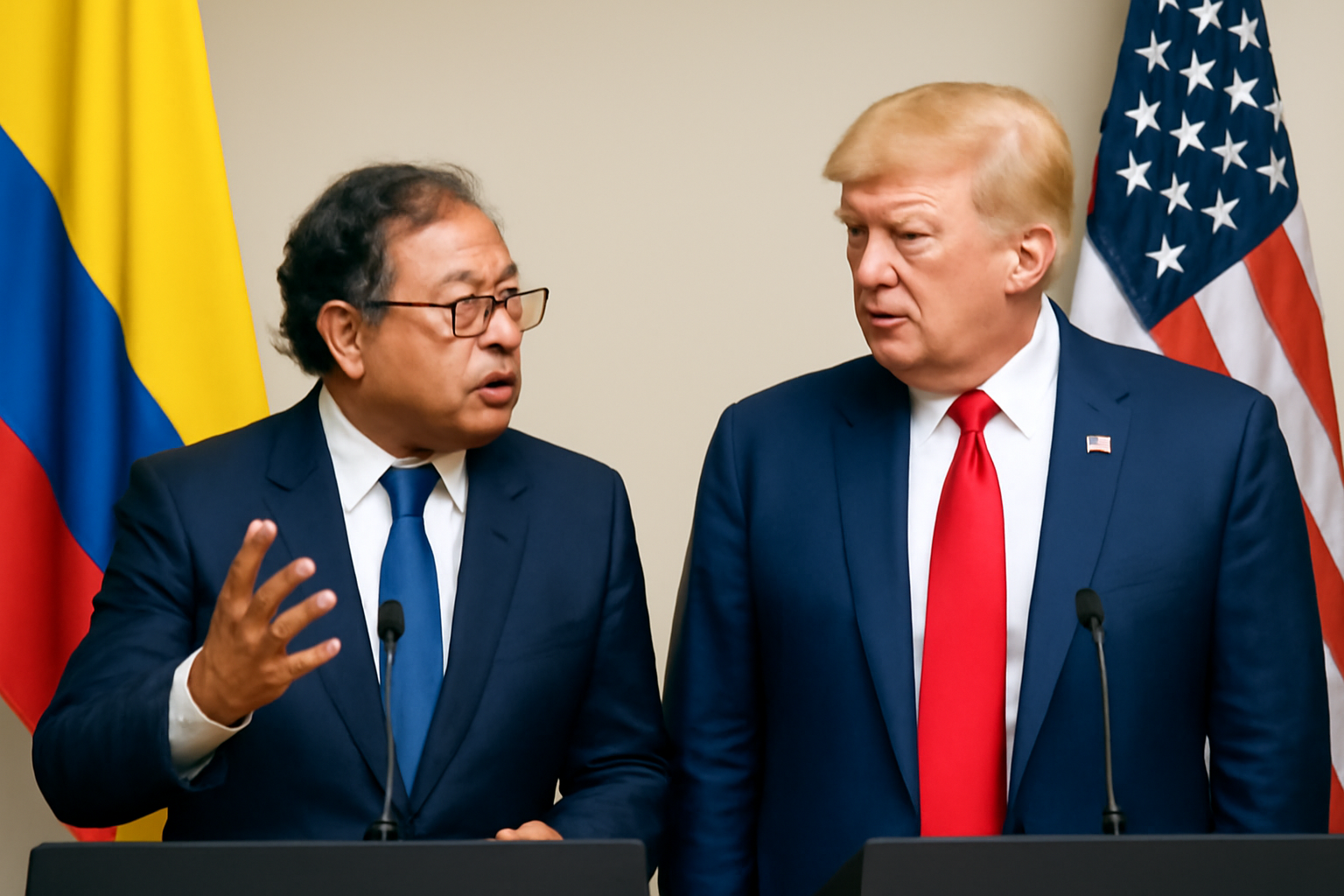
In a recent turn of events, the President of Colombia, Gustavo Petro, has made bold claims regarding former US President Donald Trump, accusing him of actions that could "wipe out the human species due to greed." This assertion comes amidst a heated disagreement between the two nations concerning tariffs and immigration policies.
The Root of the Conflict
The conflict began when Donald Trump, then the President of the United States, imposed a 25 percent tariff on all goods imported from Colombia. This was in retaliation for Colombia's decision to refuse the landing of two US military deportation flights within their borders. These flights were intended to deport individuals back to Colombia.
Colombian President Gustavo Petro initially responded to the situation by stating that Colombia would only accept deported citizens transported by civilian aircraft, as a way to ensure they were not treated as criminals. However, following Trump's implementation of tariffs, Colombia eventually conceded to accept deportees on US military flights, leading to the removal of the tariffs.
Petro's Strong Words
On social media, Petro directed a fierce critique towards Trump, arguing that Trump's actions were motivated by greed and could lead to catastrophic outcomes for humanity. He expressed disdain for certain American policies, stating that he did not care for their oil or the notion of traveling to the United States, which he described as "a bit boring."
Petro's comments went further, as he suggested that Trump was akin to "white slavers" and that any attempt by Trump to overthrow him would be met with resistance from "the Americas and humanity." He urged unity among communities, noting his admiration for the solidarity he witnessed among Black and Latino communities in Washington, D.C.
Future Relations and Dialogue
Despite the harsh rhetoric, Petro extended an olive branch, proposing a meeting with Trump "over a glass of whiskey" to discuss their differences. Nonetheless, he expressed skepticism about Trump's respect for Colombia and its people, and emphasized a resistance to any attempts to undermine Colombia's independence.
Petro's stance reflects a broader sentiment of asserting national sovereignty and dignity in the face of what he perceives as external pressures and exploitation.
LGBTQ+ Rights in Colombia
Amidst the political tensions, the issue of LGBTQ+ rights in Colombia surfaces as a parallel topic of interest. Colombia has made significant strides in terms of LGBTQ+ equality, having legalized same-sex marriage and adoption, and recognizing non-binary genders legally. However, challenges remain, such as the absence of a ban on conversion therapy.
In contrast, under Trump's administration, LGBTQ+ rights in the United States faced setbacks, with executive orders limiting the recognition of non-binary identities and reducing protections for LGBTQ+ individuals. These actions have been met with criticism from various advocacy groups, who see them as a step backward for human rights.
The Global Implications
The discourse between Colombia and the United States underlines broader themes of how immigration, trade policies, and human rights intersect in global politics. The tension is emblematic of the challenges faced when nations navigate complex relationships influenced by socioeconomic and cultural factors.
As the situation develops, it remains to be seen how both leaders and their respective countries will address these challenges, balancing national interests with international relations and human rights considerations.
In the comments below, we invite you to share your thoughts on this unfolding situation. Please keep the conversation respectful and considerate of different perspectives.
Related Posts
David Tennant Playfully Jabs at JK Rowling Amidst Harry Potter Reboot Talks
David Tennant, beloved by many as Doctor Who, has once again made headlines with cheeky remarks aimed at JK Rowling. This all happened as conversations heat up about a new Harry Potter TV series and continue around transgender rights. david tennant on returning in a harry potter TV show? At Planet Comicon in Kansas City, during a lively Q&A, Tennant—who snagged an Emmy not too long ago—was a [...]
"Wicked": Unveiling Fiyero's Destiny - Hidden Clues You May Have Overlooked
Have you ever been swept away by a story that leaves you unraveling clues long after it ends? That's exactly what "Wicked" does with its enchanting narrative, unforgettable songs, and complex characters. Among them, Fiyero stands out as a charming prince whose surprising metamorphosis by curtain fall makes us wonder: were there hints about his fate scattered throughout? Let's dig deep and see if " [...]
Triumphant Trans Woman Wins Legal Battle and Inspires Others to Stand Up for Their Rights
Breaking new ground: a landmark victory in transgender rights After battling in courtrooms and enduring endless challenges, Diana Portillo, a transgender woman, has secured a monumental victory in her decade-long fight against workplace discrimination. The result? Nearly $1 million awarded in a historic settlement. But this isn't just a win on paper—it represents a powerful precedent in combati [...]